Is the steel really important? If so, what's the advantage when I only buy good cuts of meat anyway? Aren't all stainless steel knives the same? In this blog post, we will discuss high-quality stainless steels used in our knives.
I get lots of questions about steels and why we proudly name the steels that our chef and steak knives are made from. Though not the only factor in a good knife, how do we feel about this question?
In short, yes, the steel is important. Here's why (in a nutshell).
- The higher the quality of steel, combined with the skills of a great blademaker, the better the long-term performance.
- Better edge retention means your blade will stay sharp longer.
- Higher grades of steel are easier to keep sharp and will take a great edge for many, many years.
- Better hand-grinding (done mainly on hand-forged blades and always on Salter Fine Cutlery blades) means better performance.
- And, yes, isn't it fun to know this beautiful cutting instrument and work of art is also made from the best and highest quality materials and workmanship you can find anywhere! We think so.
- Plus, your nice tender steak or roast, and even vegetables will actually taste better when cut with a sharp knife
Whoa there! What was that last one? Yep, meat that 'rips' less and delivers a clean cut from a sharp knife withholds flavor better. We will talk more about that in our next blog post, but it all happens at the molecular level.
We will continue this chat in our next blog post, so check back soon. In the meantime, here are some examples of stainless steels used in our steak, chef, carving, and collectible knives:
- R2 powder metal die stainless steel
- Gingami3 powder metal die stainless steel
- SRS13 layered core damascus stainless steel
- VG10 layered damascus stainless steel
I hope you will want to join our discussion and welcome your comments. And while we are commenting, tell me what you would like to hear about!

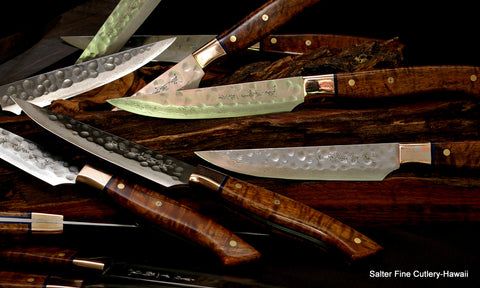
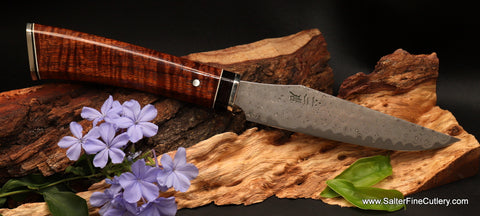
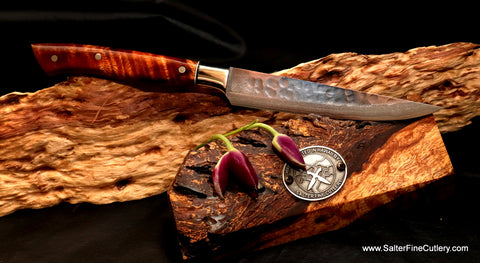
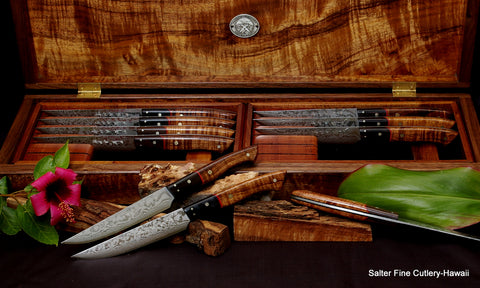
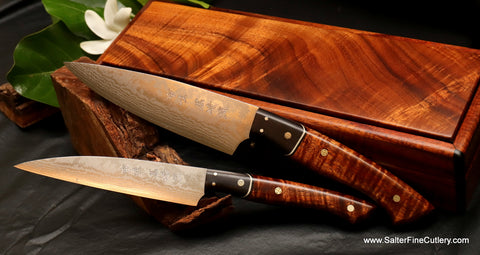
Leave a comment: